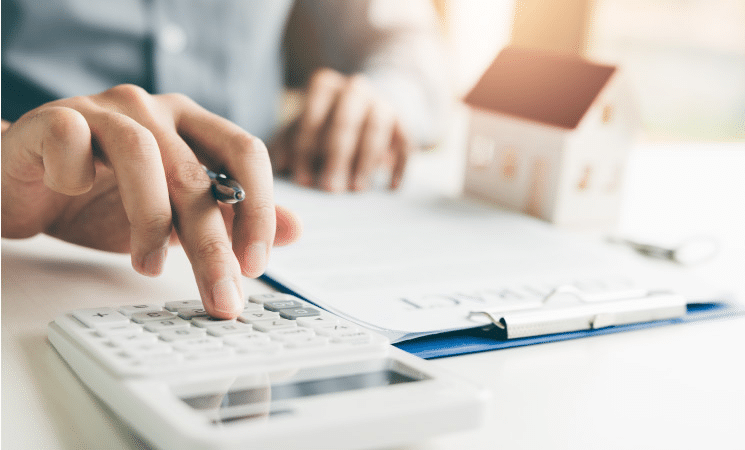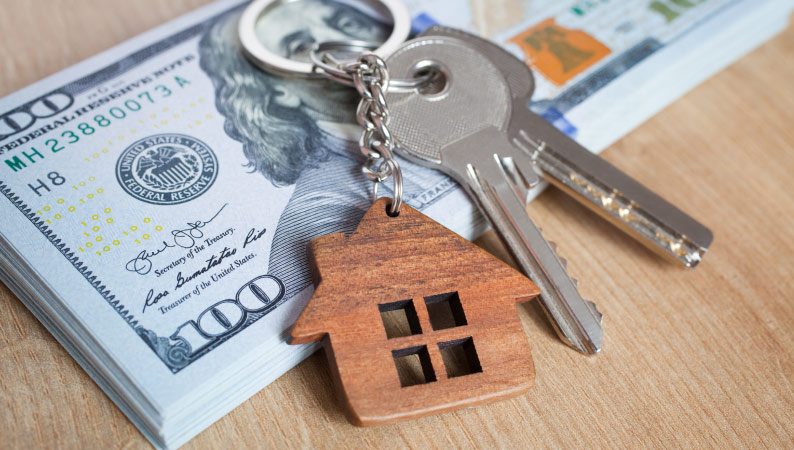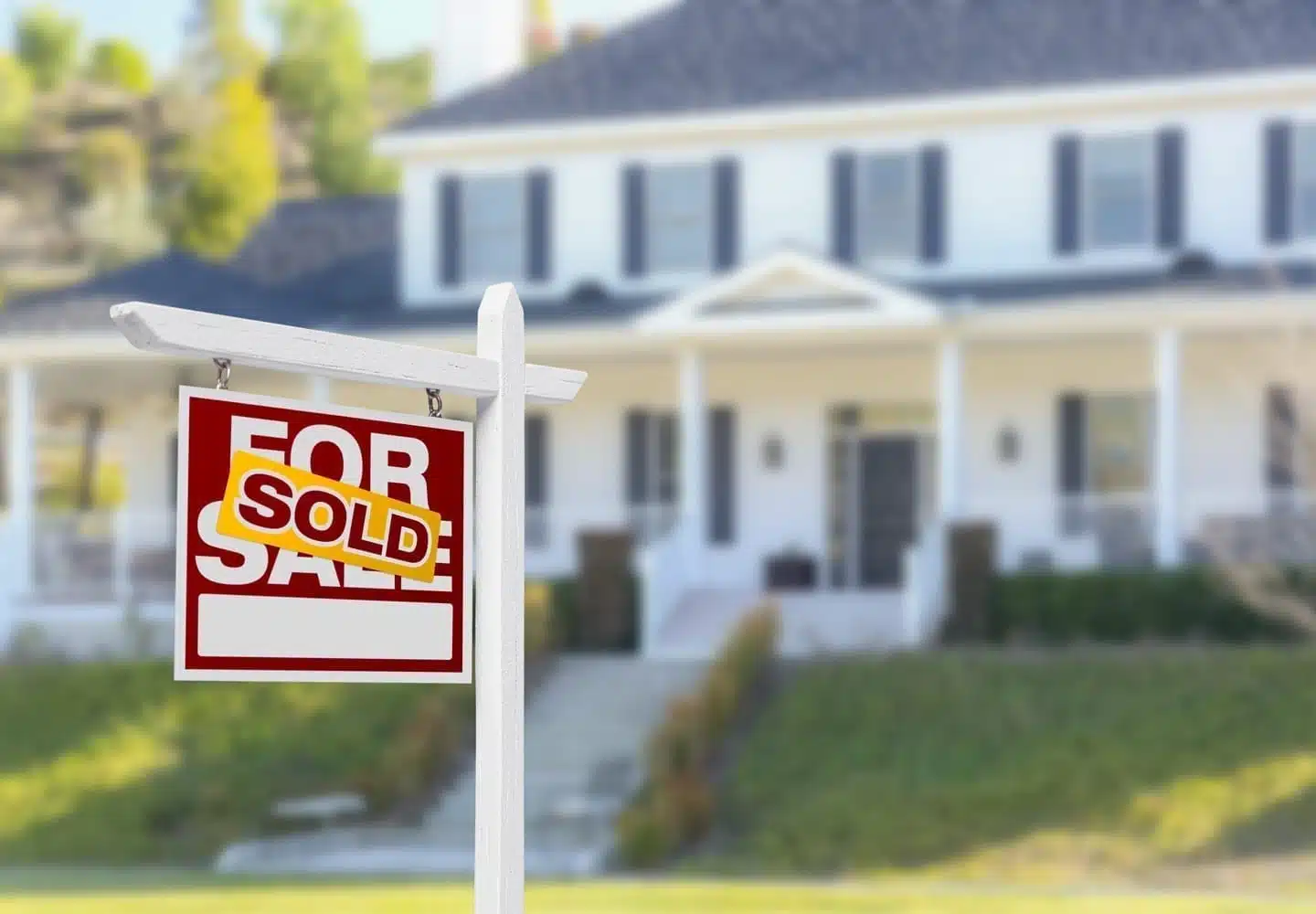
That old adage about “the more things change, the more they stay the same” is proving true yet again when it comes to real estate in 2024. If you’re wondering what questions to ask when buying a house, look no further — we’ve got you covered. First, gather some patience, a good real estate agent, and a mortgage specialist. And then read on for guidance on what to look for when buying a house.
In April 2024, Zillow reported that new home listings increased at an annual rate of 15.5 percent, up from just 3.8 percent in March. That means buyers have more to choose from and better negotiating power — but at the same time, the mortgage interest rate has also jumped to more than 7 percent, which is daunting. Likewise, Zillow downgraded its forecast for growth, since sales are still lagging behind the new inventory of homes. The company predicts a moderate recovery late in 2024 but not as robust as previously expected.
So how should you start thinking about what to look for when buying a home in 2024? For a lot of people, buying a house is the most exciting time in their lives. Home ownership is the American Dream, after all. And it is possible to find that perfect place in the midst of a tricky real estate market. But there are a lot of things to consider when buying a house. Before you dive head-first into the mix, take a look at these answers to common questions to ask when buying a house.

Do your homework before you start the home-buying process — figure out your budget, and make sure you understand the housing market.
1. What Are the 3 Most Important Things To Know When Buying a House?
First, market conditions determine how many houses are on the market at any one time — that is, if there is a shortage of listings, you will have fewer options to choose from when you start your house hunt. Other factors like inflation, the overall economy, and additional metrics are also in play. A good real estate agent will help you sort through the challenges.
Second, interest rates will affect how much home you can purchase, so starting your home search when interest rates are lower will get you more for your money.
And third, your budget is key — because price is, of course, a top factor in knowing what to look for when buying a house. If your budget cannot handle the fluctuations of the marketplace, you may have to wait to buy a home until interest rates fall again or more houses in your price range come onto the market.
2. Is 2024 a Bad Time To Buy a House?
There are some pros and cons to buying a house this year. On the plus side, you will have an investment that will grow in value over time. A home not only gives you a place to rest at night, but it is also generally the biggest asset a person owns.
On the negative side, the home-buying process has become more competitive, and interest rates have climbed because of the inflationary market. There will always be reasons to buy, and there are always reasons to wait. Work with your lender and real estate agent and read up on the topic — the PODS Blog is a great place to start — to determine whether you feel comfortable buying in this market. There are so many questions to ask when buying a house — you want to have as much information as possible right out of the gate.
3. Will House Prices Go Down in 2024?
Yes, prices are likely to go down somewhat in the short term. But it’s unlikely they will drop enough to find “bargain” prices on a home — another factor on your list of what to consider when buying a house.
To understand the nuances of the market, you have to look back at the end of 2020 and the beginning of 2021, when there was a surge in home buying nationwide. Homes literally sold in hours. People were paying over asking price, bidding wars had prices going well beyond appraisals, and buyers were waiving contingencies (like appraisals and inspections) to close even faster. Some people even cashed out financial accounts to make all-cash offers, which allow for faster closings (and are sellers' favorites).
That said, buyers making home offers have calmed down somewhat since then. But prices are likely to remain higher in bigger cities, where there may not be enough land to build on or builders willing to put up new houses — and that puts pressure on existing homes to meet the needs of all new buyers on the market.

Although there’s occasional talk that the banking system is in peril, the FDIC is there to keep your money safe — but you should also have an emergency fund in place, of course.
4. Should Home Buyers Be Worried About the Banking System?
Given last year’s news about financial institutions like Silicon Valley Bank (SVB) collapsing, home buyers may add this worry to the questions to ask when buying a house. But with quick intervention, SVB and other banks that found themselves struggling were shored up, and customers’ lives settled back down once they knew their savings were protected.
The lesson to take from the SVB incident (and other similar scares over the years) is that you should have an emergency fund and little-to-no debt before buying a home. If and when a rainy day comes, you’re prepared.
The good news? Most Americans who have up to $250,000 in the bank can rest assured that they have ample protection from the Federal Deposit Insurance Corporation (FDIC). The FDIC is an independent agency created by Congress in 1933 to promote stability and shore up public confidence in the nation’s financial system, with a guarantee to protect deposits up to $250,000. Yep, that’s what it means to be an “FDIC-insured bank.”
| Q: What are 3 things you might look for when buying a house? A: Beyond the big considerations like location and price, you’ll want to think about these three factors:
|
5. What Are the Things To Consider When Buying a House?
Your specific wants and needs are key to answering this question. And it starts with your budget and ends with your wish list — especially if you’re a first-time home buyer. As you’re pondering what you’d like to have in your home, consider the following:
Your Lifestyle
Are you on a strict budget and want to find a smaller home with a relatively lower price? Or do you want to live a lavish, more high-end lifestyle, with luxury amenities, such as a swimming pool, extreme landscaping, more bedrooms, and a gourmet or upscale kitchen (and, in turn, a larger house note)?
The Neighborhood
Do you need to think about schools — now or down the road a bit? Is it important to you to have amenities nearby, like restaurants and shopping? Or are you more of a suburb-type, comfortable with chain restaurants and big-box stores? These questions are relevant things to consider when building a house, as well. After all, you don’t want to start construction in an area only to discover your favorite cuisine is nowhere to be found within a 20-mile radius.

Family size and lifestyle are two important factors to consider when buying a house.
Your Family Size
Do you have kids and pets? Are you planning to have a big family? Do you need lots of bedrooms, or is a cozy cottage for two your style these days?
Overall Expenses
The negotiated home price will likely not be the final price you pay. Think about additional expenses that will arise during the buying process — things like the home inspection, appraisal, and additional closing costs. And don’t forget, you’ll need to pack up your current home. Pro tip: Find out your credit score — pronto — and if it needs work, get to it.
| Did you know? Whether you decide to buy now in the current housing market or later, PODS portable moving and storage containers can make the transition easier. Pack and load on your own schedule with a container located conveniently in your driveway. When you're ready, PODS will pick it up and take it to your new place or store it at a secure PODS Storage Center for as long as you need. |
6. What Should I Avoid When Buying a House?
A big red flag: You feel pressured or in a hurry to buy. The factors you should be considering in this process are square footage, quality of finishes, proximity to work or school — not the calendar. If you feel rushed, you may end up buying something beyond your budget and end up with payments you cannot afford.
Another thing to avoid? Short-term thinking. This is not a temporary situation; a home purchase is a massive investment and has the potential to last for decades. At the very least, you should seek a home where you’ll be comfortable financially and geographically for two to five years. That time frame will be sufficient to recoup your closing costs and other fees associated with the home-buying process.
The two-to-five-year period will also allow your house to appreciate in value, helping you gain some additional funds that you can roll into your next property purchase. You’ll not only benefit from potential market value gains but also from paying down your mortgage, which builds your equity. That can be a big advantage when you’re ready to negotiate your next home: more leverage and financial flexibility.

Be as prepared as possible for house counter-offers and multiple bids by having your financial house in order — and a solid down payment ready to roll.
7. How Much Should a Down Payment Be?
This is typically one of the first questions to ask when buying a house. Today’s buyers generally put down between 3 percent and 20 percent of the home’s overall price — the larger the down payment, the better. That is tough for first-time home buyers, since they don’t have property to sell first to potentially help with the down payment. But low mortgage rates mean a house can be more affordable, even with a smaller-than-typical down payment (more on why rates are so important below).
Keep in mind that you may end up in a bidding war if you live in a hotter-than-average home market, though, so be prepared for house counter-offers and multiple bids by having your financial house in order and a good down payment ready to roll. This is where your lender and real estate agent can give you advice that is specific to your individual situation.
| Q: What questions should you answer before deciding to purchase a house? A: We’ve already got a great list to get you started. But there are, of course, some other things to consider when buying a house. Among them:
|
8. What Are Mortgage Rates Looking Like?
Mortgage rates have gone from some of the lowest of all time in 2021 to higher than they’ve been in years. Why does this matter? Interest rates are especially important among things to consider when buying a house. If you can get a lower mortgage rate for your loan, you will pay less in interest, and your monthly payment will be more affordable for you as part of your overall housing costs.
If you have to negotiate a higher offer as a buyer or seller because a home has multiple bids, you’ll want to save as much as you can in other areas, such as mortgage costs, homeowners insurance, and closing costs.

Closing costs are expensive — three percent to six percent of the overall loan.
9. What Is Included in Closing Costs?
Traditionally, closing costs are the fees and other charges that buyers have to pay when they complete the home purchase. This includes items like mortgage insurance, homeowners insurance, appraisal fees, and property taxes. You’ll likely also need to pay a commission to your real estate agent for their help in the transaction.
Closing costs are expensive — three percent to six percent of the overall loan. That means you’ll want to make sure you’ve saved enough to cover these costs when you get to closing.
| Insider Tip: Owners have many options when it comes to home offers, so you may want to consider covering some of their closing costs when making an offer. |
10. How Do You Determine Your Debt-to-Income Ratio?
This is where an online calculator or your real estate agent can come in handy. You need to determine your monthly bills, which includes your rent, groceries, or other regular costs — all essential things to consider when buying a house. Divide that total by your gross monthly income, which is defined as your take-home pay before taxes are deducted.
This ratio is key to proving to your lender and a potential seller that you have enough money to successfully buy the house. Needless to say, it’s always a good idea to have your financing and finances in order before you start the home-buying process. Being prepared not only makes you a more attractive buyer, but it also helps you in the long-term with financial wellness. And securing pre-approval for a mortgage can streamline the process — and give you an edge over other buyers in a competitive market when it’s time to make an offer.
11. If You Sell, Should You Rent Versus Buying in This Market?
This depends on where you are in life. If you are looking for a smaller place because your previous home fit your family and now you’re an empty-nester, you may want to consider renting for a time before you start looking for something new. If you are waiting on the market to “cool down” so you can buy something as a bargain, though, you may be disappointed.
Really think hard about what you want out of the sale, how much you can afford, and your overall plans. It may feel like there are so many things to consider when buying a house — not to mention when you’re getting ready to sell your home — but you’ll be happier if you have a long-term strategy in place before accepting an offer or buying something new.
Karen Dybis is a freelance journalist and a frequent contributor to the PODS Blog. Her work has appeared in Time magazine, U.S. News & World Report, The Detroit News, and more.

Your quote in 60 seconds
Get pricing tailored to your needs!








